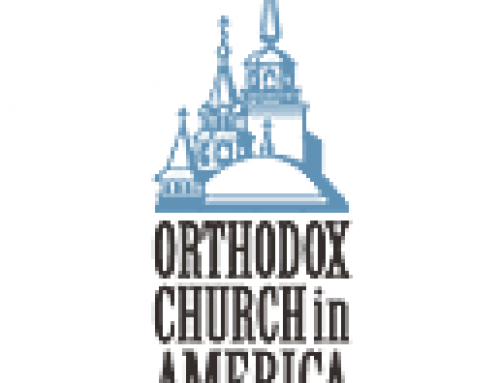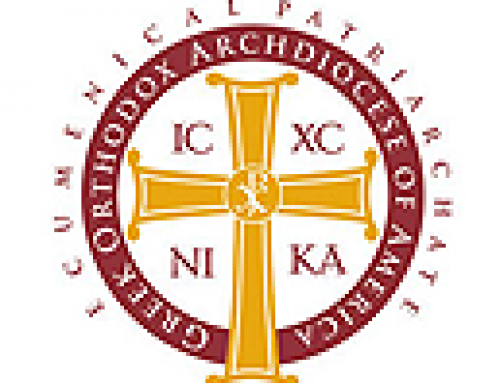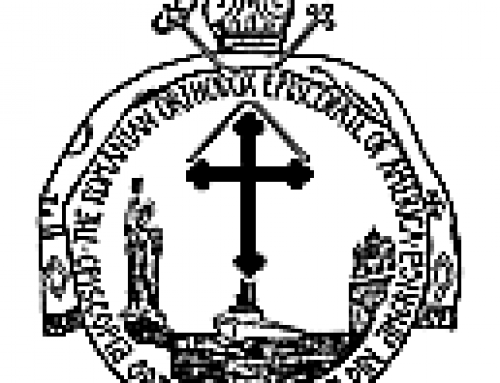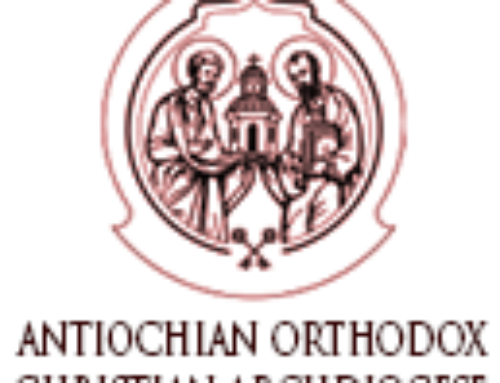This post was originally published on this site
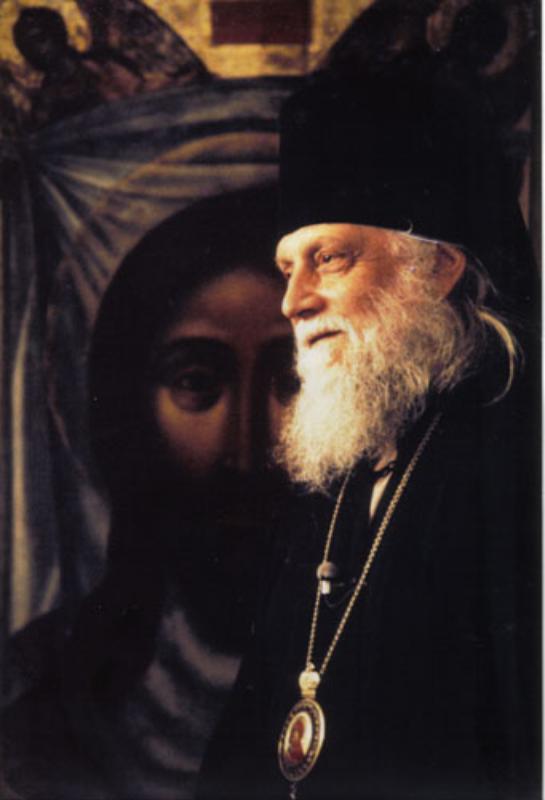
Today marks the 20th anniversary of the repose of Bishop Basil Rodzianko, former Bishop of San Francisco and the West.
Bishop Basil (Vladimir Mikhailovich Rodzianko) was born on May 22nd, 1915 in Little Russia (Ukraine), in his family’s ancestral estate of Otrada, where his father, Mikhail Mikhailovich, a graduate of Moscow University, was busily managing his estate. At age two he had a death sentence pronounced on him by Lenin’s new regime, as part of the Rodzianko family. In 1920 the family had to emigrate from Russia and settled in Yugoslavia, which at the time had become one of the cultural and religious centers of Russian emigration. In 1925 the young Vladimir entered the First Classical Russian-Serbian High School (Gymnasium) in Belgrade, where he met Metropolitan Anthony (Khrapovitsky) and also a young priest-monk John (Maximovich). Meeting such people could not but have a decisive impact on his subsequent life. In 1933, upon graduation from high school, he applied to the theology department at the University of Belgrade.
A few months before entering his theological studies, while in Paris, he visited his aunt and godmother, a princess in the Golitsyn family line. When he told her of his plan to study theology, she showed silent disapproval. But when he added that another nephew was becoming a priest she exploded. “Oh, everybody is going mad,” she said. His aristocratic family had shunned his choice of the Orthodox priesthood, yet that is what he chose. They had tried desperately to convince him to flee Yugoslavia when the Red Army approached, but he resolved to stay with his little village flock. Twice under arrest, he was told that a mere signature of confession would gain him the leniency of the Communist authorities, but he refused on principle. One such refusal led him to prison. Likewise, he had met opposition to his religious broadcasts, but decided to continue. In each case, though not without struggle, he chose what he viewed to be principle over compromise.
Vladimir received a degree in theology from the University of Belgrade in 1937. Later, he pursued graduate studies in theology at the University of London in connection with the Church of England. In the early years of World War II, he returned to Yugoslavia. Vladimir was ordained by Novi Sad’s Serbian Bishop on March 15, 1941, as a deacon in the Serbian Orthodox Church. In a few days, on March 30 in Belgrade, he was ordained a priest. The young priest’s first liturgy took place as he assisted the archpriest in a Russian Orthodox church in Novi Sad. The 10 AM Liturgy on that Sunday of April 6, 1941, was one of the last hours of calm in Yugoslavia. By morning’s end the work of three hundred bombers had killed twenty-five thousand people. Nazi troops were invading Yugoslavia, and in the early period of the Nazi occupation he witnessed a massacre of Yugoslav civilians by Nazi soldiers on the banks of the Danube River.
For most of the war, he was a parish priest in a country village, where he also gave religious instruction to children and did volunteer work with the Red Cross. But in 1949, as he was leading a celebration of the Feast of St. Peter and St. Paul, he was arrested on charges of “illegal religious propaganda” by communist authorities who then ruled Yugoslavia.
He was sentenced to eight years at hard labor. But from his theology studies in London, he had friends in the Church of England who persuaded the archbishop of Canterbury to intercede on his behalf. After two years, he was released from his sentence. On the advice of the Serbian Orthodox bishop, he left Yugoslavia and moved to London.
There is a noteworthy story from his time in a communist Yugoslavian prison. In his sixth month at the Zabela camp, Fr. Vladimir began to suffer terribly. His hands had developed ulcers from working the sand mine and he was weak from malnutrition. The prisoners received their only meal of the day after the work was done. Usually it was a piece of corn bread and a bowl of barley soup. Once, when he collapsed, the guard kicked him and ordered him to get up. Knowing that if he faltered again, they would take him to the infirmary to die, he kept going. Some prisoners helped him, including a young Catholic seminarian who took some of his load and encouraged him spiritually.
One evening Fr. Vladimir forgot to tip his hat to the guard, which earned him a severe whack on the neck by the guard’s fist. This threw him into a depth of despair and confusion he had not yet known. Inside the barracks he simply fell on the straw and slept – for the first time without a prayer. There was no God to pray to. Either the heavens were empty or they had closed up. That night he had a dream. An old man came to him smiling and said, “Be joyful for Christ has risen!” He asked Fr. Vladimir why he was sad. Going this way, the old man said, provides a chance to change yourself, to start a new life; in that sense it was a joyful path. Fr. Vladimir recognized that it was Saint Seraphim of Sarov. The dream included a long conversation, but Fr. Vladimir awoke remembering only Seraphim’s countenance. Outward difficulties remained that next day but internally he felt changed, refreshed.
In later years he reflected on the experience in communist prison: “Being there, all conventional things cease to exist. All presumption in relationships is taken away and you become open. One is no longer in a state of being self-conscious and feelings are natural without walls. You can know immediately who is a friend, who is an enemy, and you know how to behave to preserve your integrity and belief. The terrible suffering can at times become a source of happiness. It is a paradox, but that is what I learned.”
He was known for the broadcasts on religious topics that he made from Britain and the United States to the Soviet Union for more than three decades. The broadcasts by the Bishop, were initially transmitted by the British Broadcasting Corporation during the Cold War. These broadcasts had many listeners during the Soviet period and significantly contributed to the re-emergence of Orthodoxy in Russia. In the latter part of his broadcasting career, his radio talks were transmitted by the Voice of America and Radio Vatican.
Archbishop John Shahovskoy had been inviting Fr. Vladimir to move to California and serve in his Diocese since 1953, but Fr. Vladimir accepted the invitation only after he was widowed, when his wife Maria suddenly died in 1978. Archbishop John, hearing of Fr. Vladimir’s loss, contacted him again with condolences and then the well-known proposition. This time, however, he was needed in America as a bishop in what was now the Orthodox Church in America (OCA).
As a Serbian priest, Fr. Vladimir received the canonical release from the Serbian Orthodox Church. At age sixty-three, he accepted monastic tonsure with the new name Basil, after St. Basil the Great, from Metropolitan Anthony Bloom.
The news of his call to serve the Church as a bishop reached him while on a pilgrimage to the Holy Land, which he led as part of a joint Orthodox-Anglican program. While on the Mediterranean Sea in a ship carrying the group of pilgrims, a radio telegram reached him on the vessel. The news came over the announcement system: Fr. Vladimir was elected auxiliary bishop of Washington at the New York synod of Orthodox bishops on October 19, 1979.
Before Fr. Vladimir could permanently leave England, he needed an American immigration visa. The American Embassy in London would not provide it, however, unless he could prove that his two years in the Yugoslavian Soviet prison were not for criminal offenses. This was hard to believe for Fr. Vladimir – him a criminal? But he had negotiated the painful immigration gambit before, and he was willing to persevere. To obtain proof that he was jailed for religious reasons he traveled to Communist Yugoslavia. When he arrived in Belgrade and sought out the courthouse where he had been sentenced, it was like resurrecting a dark bygone era. Nearly thirty years had passed, and the court had lost the papers. In their place the Serbian patriarch drafted and signed a document giving an account of the imprisonment. With this in hand, Fr. Vladimir returned home and finally received clearance from the United States government to immigrate.
Bishop Basil became the unlikely combination of priest and news reporter, confessor and publicist. Though Russian-born, he was raised in Serbia and served as a priest in the Serbian Orthodox Church, later on January 12th, 1980 becoming a Bishop of the Orthodox Church in America.
In his retirement from 1984 on, Bishop Basil devoted all his strength and all his extraordinary spiritual learning and experience to serving Orthodoxy. At St. Nicholas Cathedral in Washington, DC, he cared for the needs of the parish and of individual believers. Bishop Basil lived and worked in a small condominium in Washington D.C., the center for his Holy Archangels Orthodox Christian Broadcasting Center, which later became the Holy Archangels Foundation. Behind the impressive title lay only a typewriter and a tape recorder, and later a portable computer. His humble condominium was filled with hundreds of books and tapes of his broadcasted programs, as well as of his rich and dynamic pastoral life. But if anything had pride of place in his “room for all seasons”, it was the Orthodox altar, where he regularly served Divine Liturgy.
The new Soviet era of glasnost opened a new opportunity to fulfill a lifelong quest. By 1988, after being persona non grata for decades with the Soviet state, Bishop Basil was able to return to his home country. More than a tourist, the bishop went as a pilgrim. Some of the millions of Soviet radio listeners who knew his voice were now able to complete their experience by meeting him in person. On one of his visits to Russia in 1990, he spent almost half a year at the Holy Trinity Sergius Monastery, where he conducted research at the library and delivered a course of lectures. As a result of this stay, he completed his book “The Theory of the Big Bang and the Faith of the Holy Fathers” (published in 1996). This book considers the relationship of Orthodoxy and scientific knowledge, a topic that is extremely relevant in our day.
Bishop Basil served at St. Nicholas Cathedral in Washington D.C. for many years. The prayerful memory of Bishop Basil will forever remain with those to whom the Lord bestowed the joy of seeing and hearing him. We really hope that those who did not know him during his earthly life will be able to get acquainted with the films and books of his spiritual exploits, and that this will give them comfort and strengthening of faith, leading to a proliferation of love.
More information about Bishop Basil can be found at www.rodzianko.org.
Sources: Rodzianko. An Orthodox Journey from Revolution to Millennium, 1917-1988. Larry Witham. “Alpha and Omega” magazine, 1[23], 2000.


